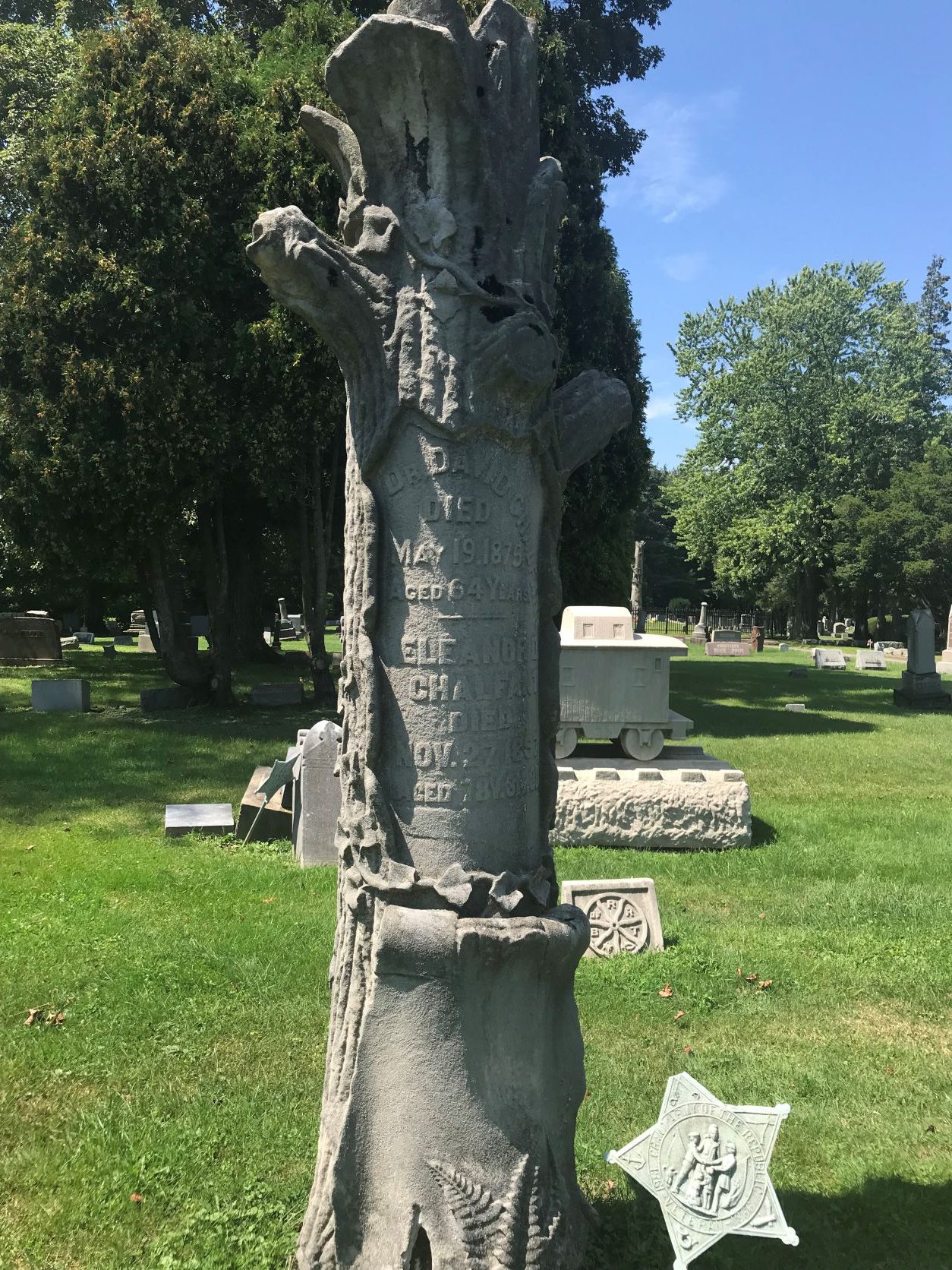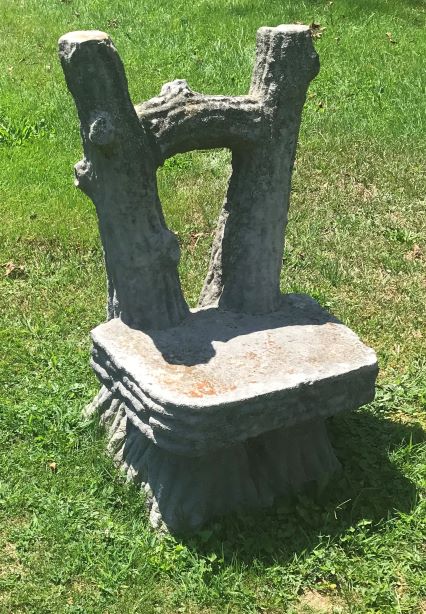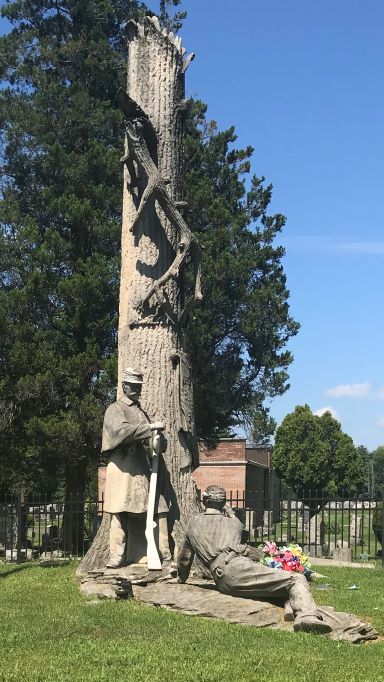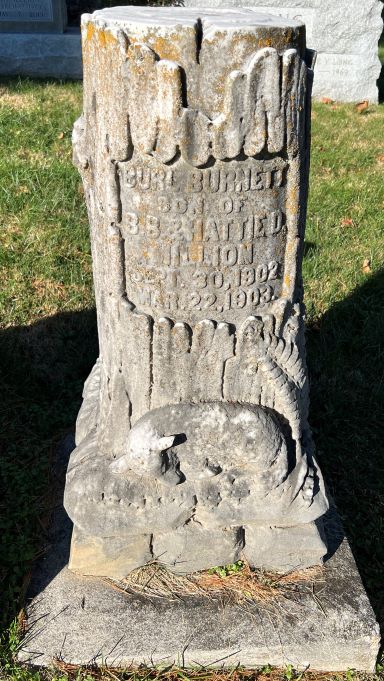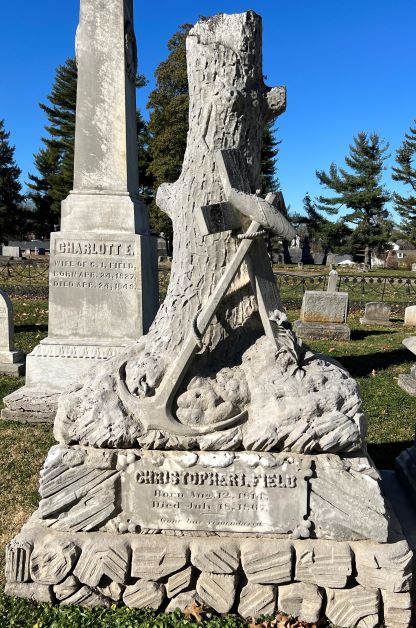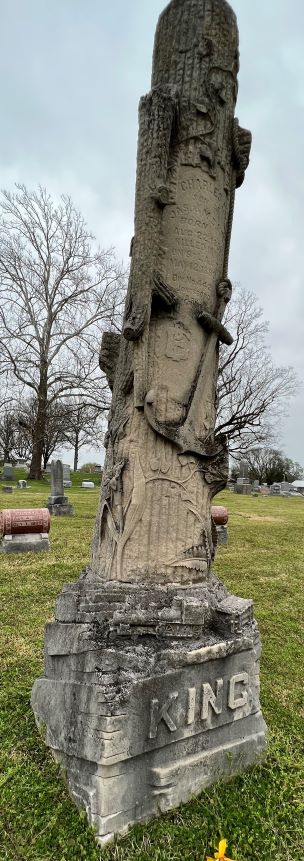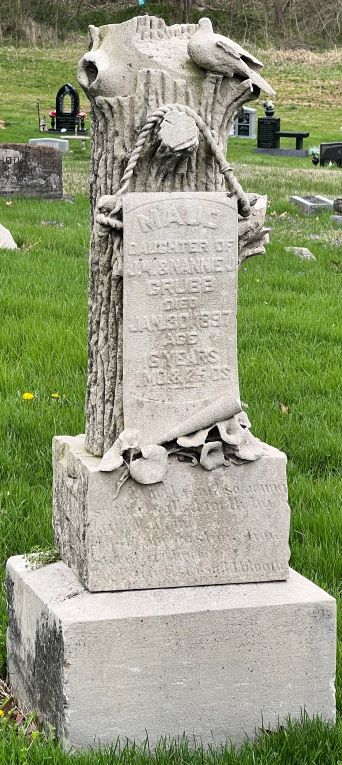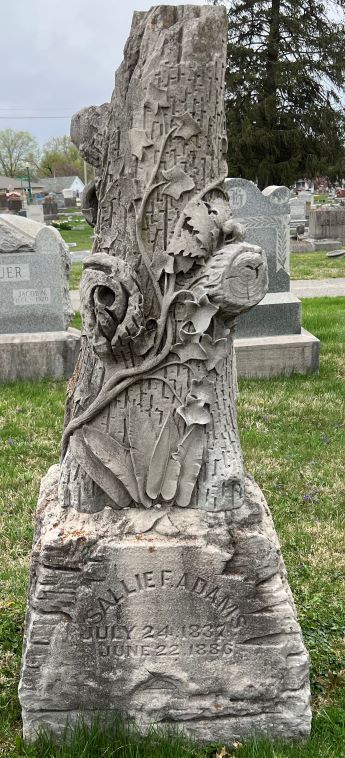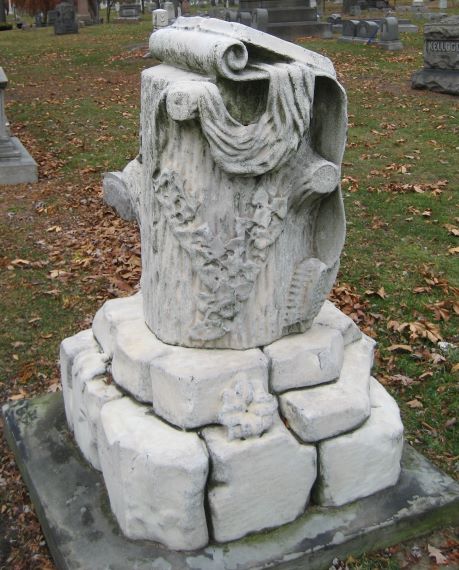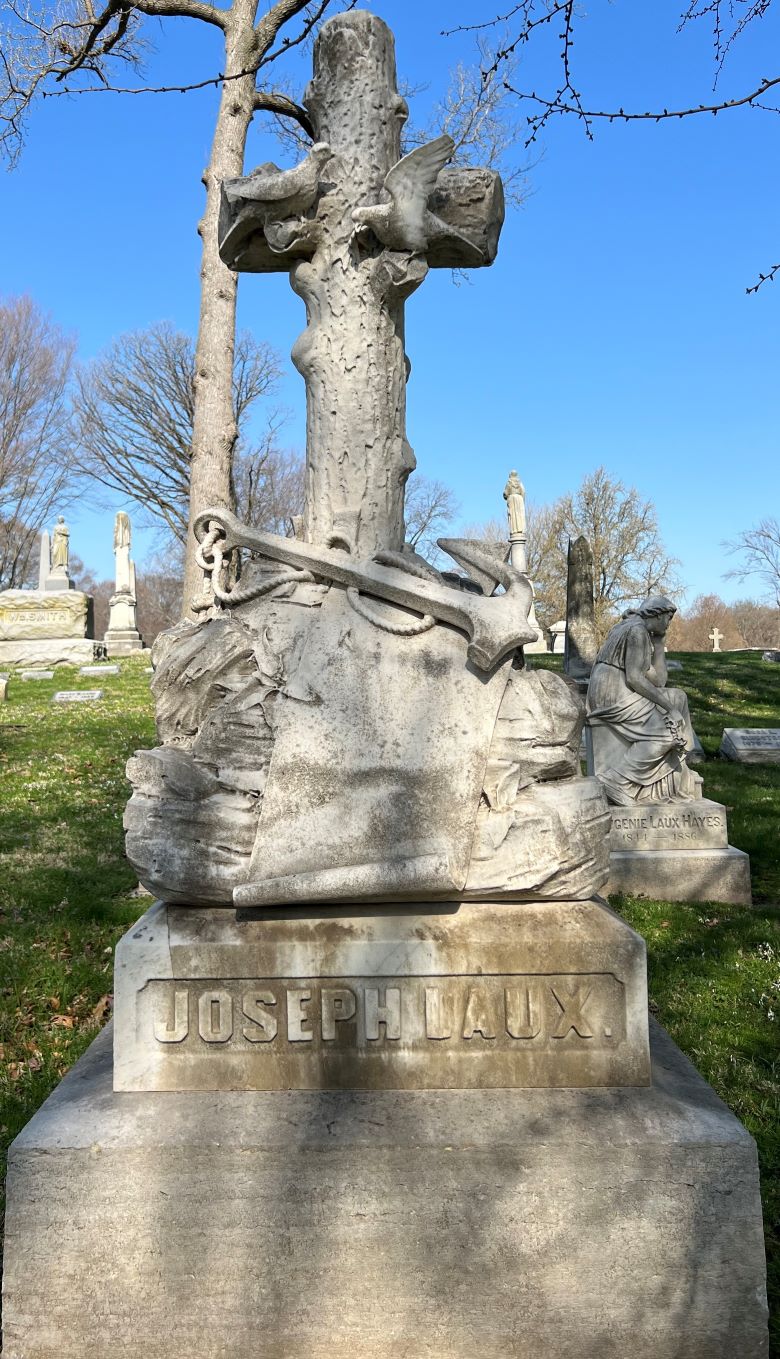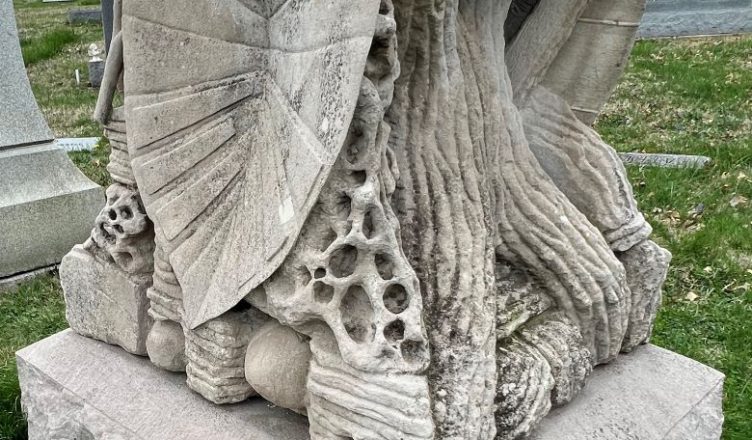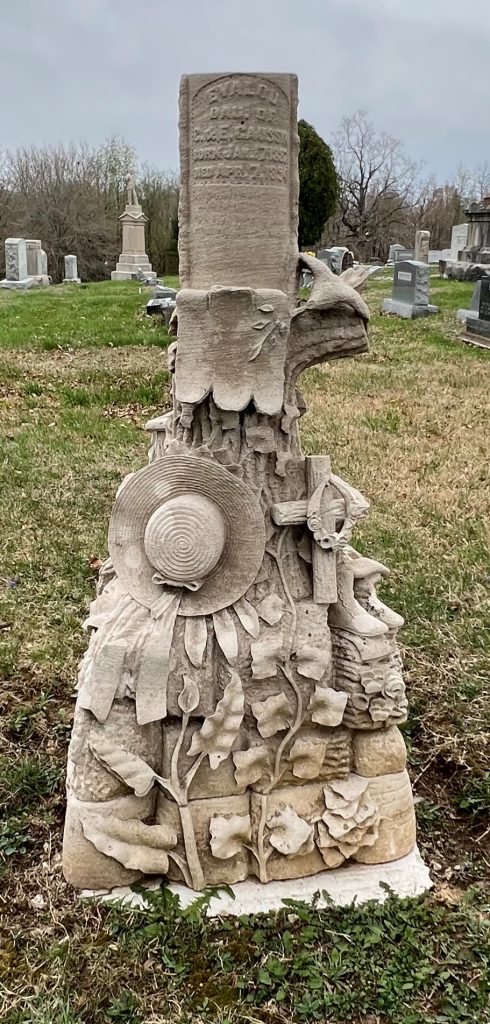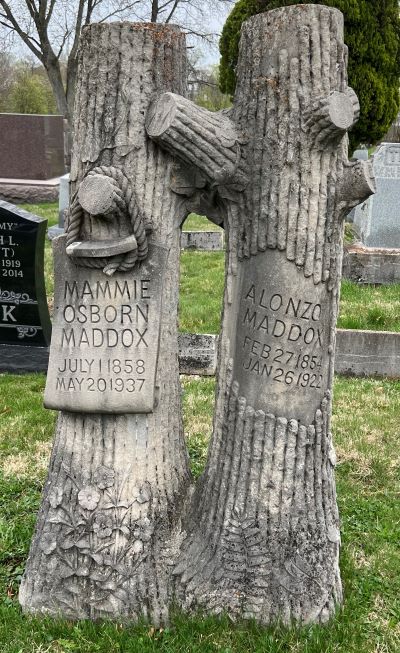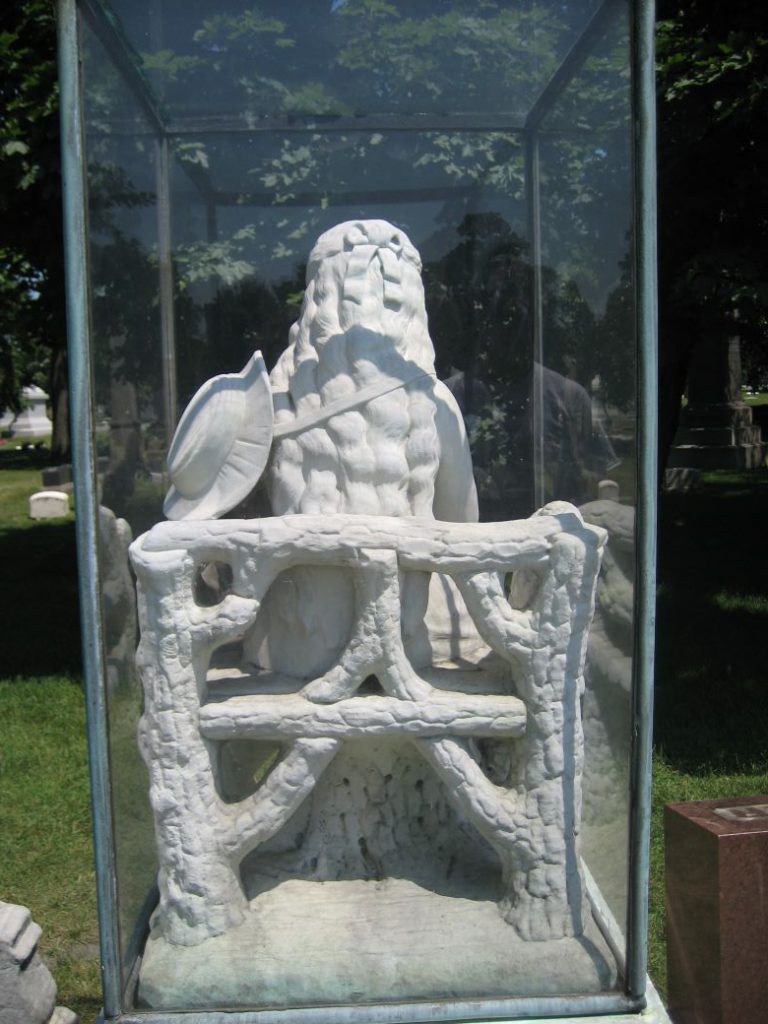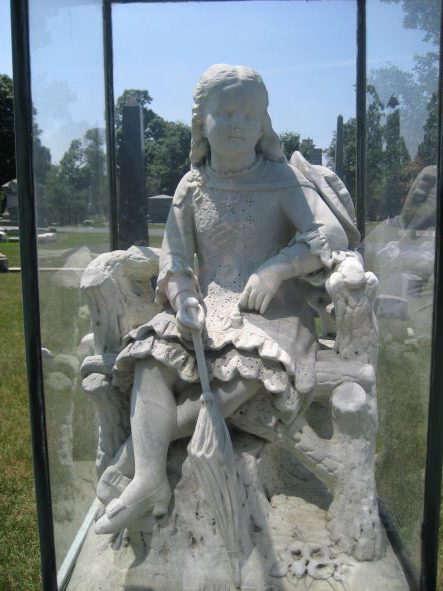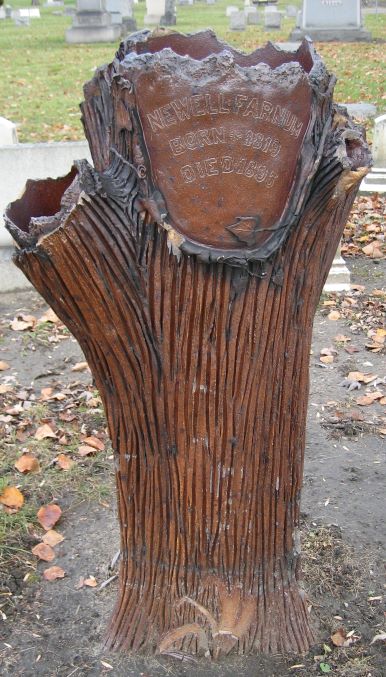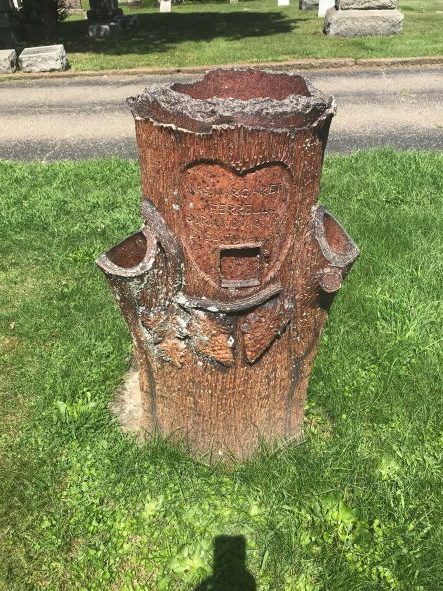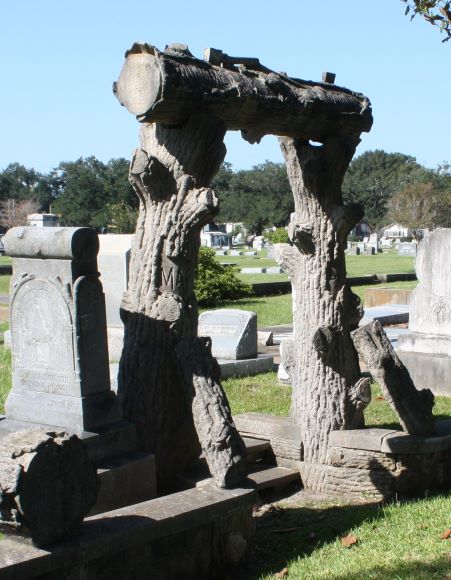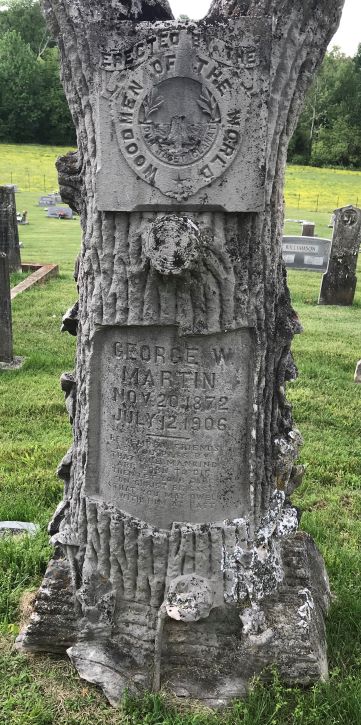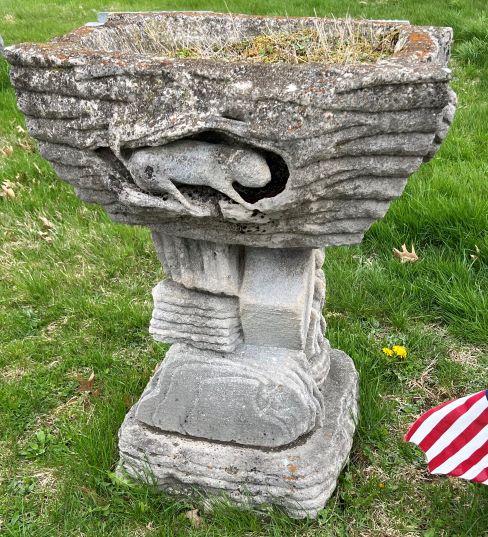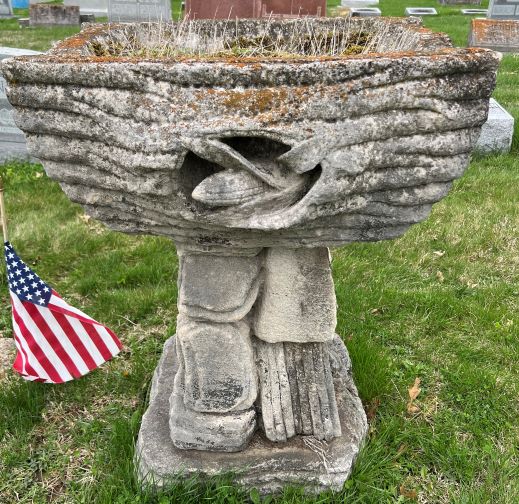Treestones were a product of the Victorian Rustic era and were popular funerary monuments from the 1880s until the early 1930s. Together with tree stumps, twig and leaf fences, benches and chairs, they symbolized a back-to-nature, rural cemetery motif and were frequently adorned with Victorian symbolism. Most were made of limestone, though some were of marble and fewer of granite.
The Indiana Limestone Belt, a band about ten miles wide and thirty miles long, between Bloomington and Bedford, Indiana supplied much of the treestone material across the United States. The beauty and durability of Indiana limestone, also known as Bedford Limestone, elevated the stone to the best quarried limestone in the world.
Tree Stones
These tree stones are two of about forty in the Green Hill Cemetery of Bedford, Indiana.
EvaLou Gaussin’s limestone tree stone (left), depicts the innocence of the little girl with her sun bonnet and button boots. Her rose headband hangs from a cross with ivy, a symbol associated with immortality and fidelity, climbing up to a dove with an olive branch which symbolizes innocence and peace, love, and purity.
Mamie Osborn Maddox’s son from a previous marriage to Eugene Osborn, Atlee Osborn, was a stone carver. He may have been responsible for Mamie and Alonzo’s double-tree tombstone.
Twig Chair
Inez Clarke is seated in a twig chair encased in glass in the Graceland Cemetery in Chicago, Illinois. According to Altas Obscura, it is said that “she regularly comes to life and explores the cemetery.”
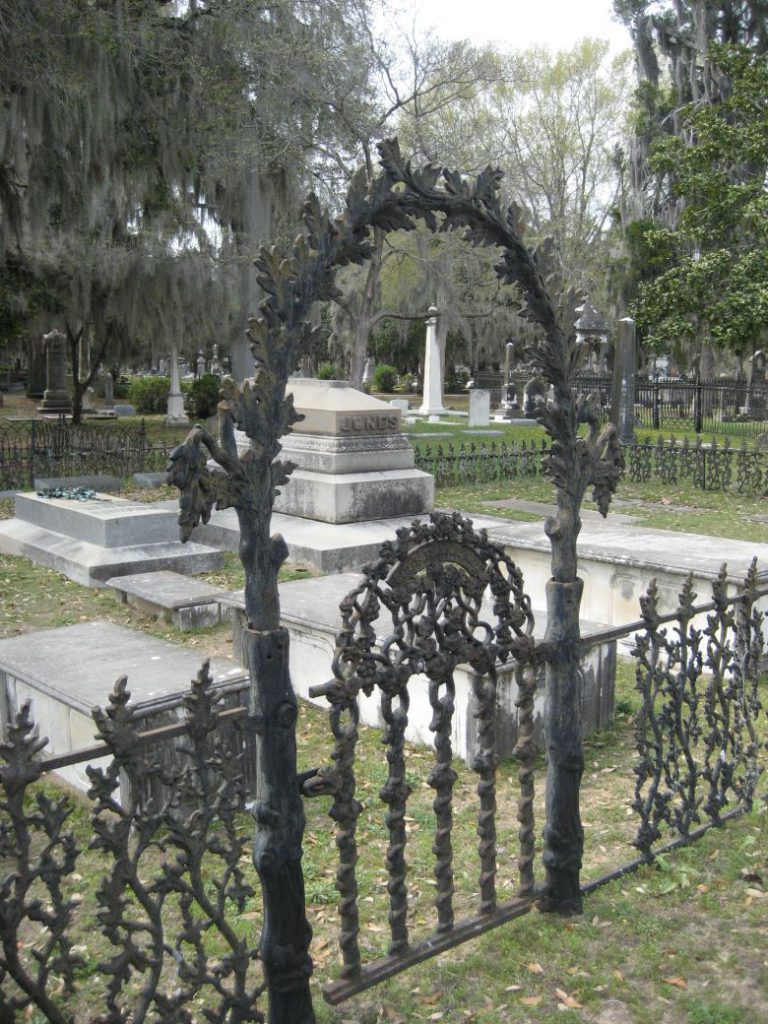
Twig and Leaf Gate and Fence
The gate on the Gee’s Family Lot in the Live Oaks Cemetery in Selma, Alabama is made of twig branches with oak leaves. The rustic design is quite similar to a catalog entry of Wood & Perot, makers of cast iron cemetery accoutrements in the 1800s.
Red Clay Tree Stump
According to the GravelySpeaking blog, the Superior Clay Corp. of Uhrichsville, Ohio dabbled in tree-stump tombstones in the early 1900s. They appear to be red clay or terra cotta and are quite an unusual material for tombstones.
WOW–Woodmen of the World
WOW, a fraternal organization, offered tree stones to their members as a benefit starting in 1892 to “every beneficiary member of the order who was in good standing at the date of his death.”
According to Annette Stott in the AGS Markers XX volume, the program ended in 1932. As costs increased, the trees became short, shallowly carved stumps.
The tree arch at left marks the WOW plot in the Magnolia Cemetery of Mobile, Alabama.
Rodent & Corn
This unusual planter stone is in the Green Hill Cemetery of Bedford, Indiana. One side depicts what looks like some sort of rodent and the other side is an ear of corn.
